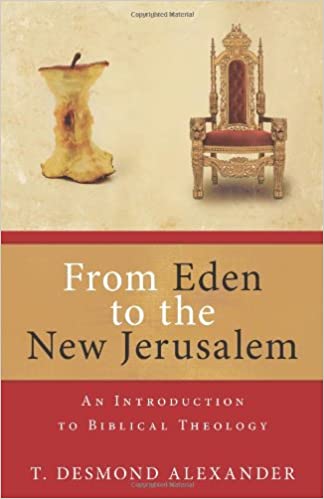‘Why does the earth exist? What is the purpose of human life?’ These are the very large questions with which Dr Alexander begins this unusual example of biblical theology.
In doing biblical theology one tends to look for the big picture, or as he is fond of putting it, the biblical ‘meta-story’. As the title suggests, it begins in the garden and ends with the new heavens and the new earth. That is a huge study and so, of course, the author uses broad-brush strokes. He communicates a lot of biblical material in a condensed and understandable way.
God’s plan, from the beginning, was to create a great arboreal temple city, which would be his dwelling place and the dwelling place of a special people who would share his holy character. The plan began in the garden but was interrupted by man’s rebellion.
Dr Alexander then traces the history of redemption by considering various themes. Some of them are: God’s presence and the various dwelling places for God on earth; God’s sovereignty; God’s defeat of the devil; the sacrifice of the Lamb; holiness; and the transformation of the cosmos. Of course, a book of this size cannot possibly examine every theme.
Dr Alexander has been Director of Christian Training at Union Theological College, Belfast, since 1999. Among other works, he was co-editor of the New dictionary of biblical theology (IVP).
One question that intrigued me as I read the book was this — what is his intended readership? I’m still not sure. He might have had his first year Bible college students in mind. He might have intended the book for many of the Christians in churches with a reasonable amount of biblical knowledge, and who have heard a fair number of sermons, but have not somehow grasped the overall unity of the Bible.
Dr Alexander’s book unveils that unity and covers a large amount of ground in the process.




